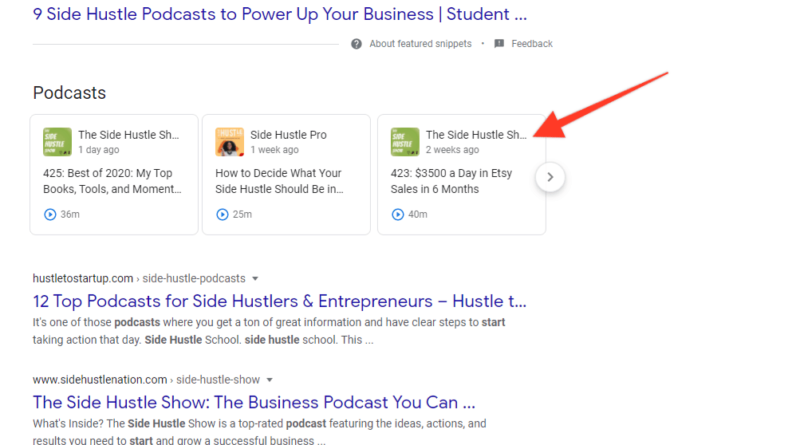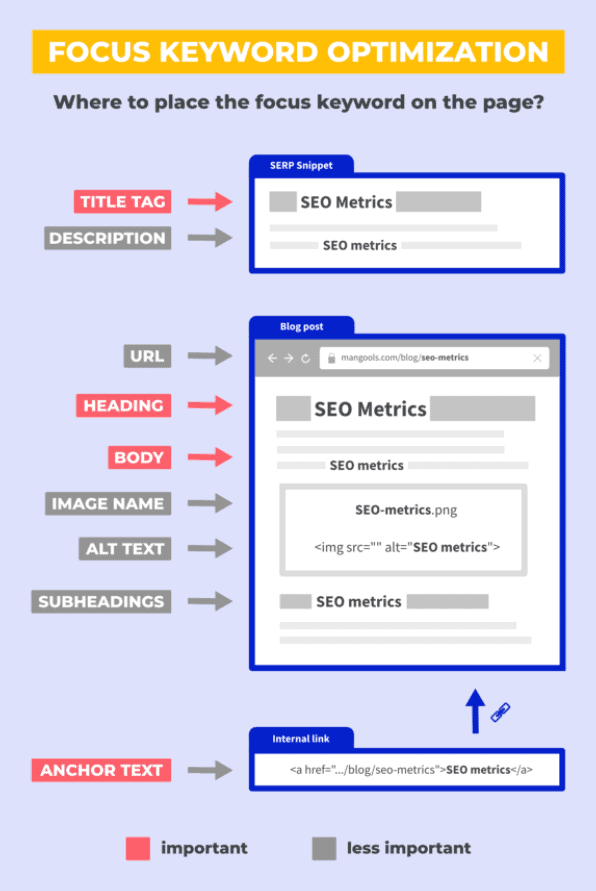
When you think about optimizing your podcast for SEO, the things that probably come to mind are keywords, how to target them, or strong content strategies. But, most people don’t associate podcasts with search engine optimization and are missing out on some key growth opportunities. In this post, we’ll teach you about SEO for podcasts, including some podcast SEO tips that can introduce a podcast to new audiences and contribute to a brand’s ranking authority with Google.
It’s no surprise that podcasts, an audio format, aren’t typically associated with SEO practices. Google was unable to index audio content until recently. Starting in mid-2019, Google began scanning audio files for relevance, marking new territory for podcasts and content marketing.
There are tactics you can use to optimize your podcast, both for written and audio content, so that it ranks higher within search engine results. This means not only more listeners for your podcasts, but also more website visitors and better brand awareness. Some of these podcast SEO tips overlap with general SEO practices, while others are specific to audio content.
In this article, we’ll teach you how to optimize your podcast, give you an overview of everything you need to know about SEO for podcasts, and show you how to make your show more SEO-friendly.
The Basics: Why is SEO Important?
A key element of digital marketing, SEO helps drive more visitors to a website. SEO, or Search Engine Optimizationit’s about getting your site, page or content as high as possible in search engine results.
Of course, the term refers to search engines in general, but today SEO is really all about Google. Google is done 63,000 searches every secondrepresentative 92% of all online searches worldwide. For businesses of all kinds, this represents a great opportunity to get new customers, but they have to find you first.
In 2019, life doesn’t exist beyond the first page of Google. Few users click on the second or third page of results, and many won’t even scroll down past the first few. Therefore, in order to reach your audience, you need to rank as high as possible on those critical SERPs (search engine results pages) for the searches your potential listeners make.
What is SEO content marketing and how do podcasts fit in?
When it comes to optimizing your podcast website for Google, there are several things you can do. You can research the most relevant podcast keywords for your audience and include them on your site in strategic places. You can make sure your site is technically up to parand build authority links this tells Google that your site is trustworthy and that the information is valuable.
One of the most effective strategies to put yourself ahead of the competition is content marketing. Strategic use of content can help your site rank better, both for your domain and for individual pages on your site. This content can be blog posts, infographics and of course podcasts. Content marketing goes hand in hand with SEO, driving more traffic to your episodes. In the next section we will explain how to implement it SEO best practices for your podcast and website.
In order to reap the benefits of SEO for podcasts, you first need to set up a website. Check out our 6-step guide to creating a custom WordPress site to get started. Creating a website may seem like a challenge, but it’s a key way to promote a podcast that will definitely pay off your investment in the future. It’s one of the first steps we recommend new hosts take when starting a podcast.
SEO Best Practices for Podcasts
There are a few ways to adopt SEO for podcasts. Since Google was previously unable to index audio content, most of these tactics originally focused on written content. These techniques are still relevant today, and we’ve also added new audio-specific tactics to make sure your podcast is SEO friendly. Follow these SEO Podcast Tips to optimize your show.
Choose podcast keywords for each episode
This is one of the most important podcast SEO tips on our list! Using the right podcast keywords is essential for SEO of any kind, and podcasts are no exception. Keywords tell Google that your episode is relevant to a user’s search, and thus makes it more likely to appear in results.
With smart podcast SEO, your show can appear in Google search results.
However, this strategy doesn’t mean simply picking a podcast keyword that you only think is relevant to your podcast. Instead, the keywords included should be what your target audience is searching for. To establish what keywords they are, you should conduct in-depth keyword research, including one SEO competitor analysis.
proof Google Ads Keyword Planner or other tools like The Moz Keyword Explorer to discover the search terms your audience is already using. These tools are perfect for helping organize an SEO strategy for podcasts. They show monthly search volumes and even suggest related keyword phrases you might not have thought of.
Use keywords in your episodes
Now that Google has it integrated indexing of audio content, this means that podcasts can appear in search results. This is a huge opportunity for podcasters, as episodes can appear in any search, not just when users are specifically searching for podcasts. Make sure your show contains the target podcast keywords your audience is searching for.
An easy way to do this is to choose an episode topic based on the keywords you’ve established through your research. Throughout your script, you will naturally use the keyword and associated words, which is critical to an optimal SEO strategy for podcasts.
Includes written content for each podcast episode
This is another key way to optimize your podcast, although many podcasters don’t bother. They simply upload a new episode to their podcast host and wait for listeners to show up.
Google and other search engines easily scan your written text to decide if your content is relevant. By giving Google written content to “read” to complement the audio content, it has a better chance of ranking an episode in search results.
It’s important to create separate pages for each podcast episode, including text describing its content and context (along with the audio player, of course). Not only does this provide more keyword opportunities (more on that below), but it also means you can rank individual episode pages for searches related to that specific topic. More rankings means more traffic, more listeners and a more loyal following.
There are two simple ways to add written content to episode pages:
First, it includes podcast notes. These are short summaries, often in bullet form, that tell potential listeners what to expect in the episode. It’s also a great way to display any images, graphics, videos, or links you mention in the episode.
 Include show notes to increase the SEO of your podcast page.
Include show notes to increase the SEO of your podcast page.
Second, it includes podcast audio transcripts. These are full, word-for-word transcripts of everything said on the show. You’ve already created the content (the audio), so why not reuse it in written form. This is an easy way to get a lot of content written for your page that Google likes.
If you choose Castos as your podcast hosting service, each episode you post can be automatically transcribed into a full, word-for-word account of your episode. We’ve teamed up with an industry-leading text-to-speech technology provider to deliver a completely seamless transcription experience. Additionally, you can take advantage of our podcast editing service that will create show notes for each episode.
Place your keywords in the right places
An important factor in the written pieces included in each episode is the placement of podcast keywords. Not all parts of your website are created equal according to search engines. Google scans certain parts of posts and pages first, giving priority to those elements.
The most important places to include keywords are:
The title of the post The title of the podcast episode Captions The URL of the post Image file names Image ALT attributes Start and end of page content Naturally sprinkled throughout the page content
 Places to use your podcast keywords.
Places to use your podcast keywords.
When including transcripts, show notes, or supplemental blog posts for a podcast, avoid trying to force podcast keywords onto those sites. Google detects sites that “keyword stuff” meaning that keywords are presented too much on the page in order to manipulate the search results. When including your target phrases on your site, make sure they fit organically. Start by writing your posts with keywords in mind so you’re not stuck trying to fit a square peg into a round hole.
Summary of SEO for podcasts
It’s easy to assume that search engine optimization isn’t important for audio media, but times have changed. With Google actively scanning audio content for context, these SEO best practices for podcasts are an important growth strategy.
Fortunately, the strategies are similar to what content marketers have been doing with written pieces for years. Focus on the podcast keywords your audience uses in their search queries and include those terms in your podcast.
As you optimize your podcast and your show gains more authority and improves its ranking in the eyes of Google, you’ll see episodes jump to the first page of search results allowing new listeners to discover your show.
Post written by Tom Buckland. Tom Buckland is a digital marketing consultant and Amazon seller specializing in technical SEO. He is the founder of the Cardiff based digital marketing agency HQ SEO in the UK and loves helping businesses profit through smart digital marketing strategies.
action
Read on to start your own podcast? Learn the most important details of starting your own show in our complete guide. Learn how to start a podcast.
[ad_2]
Source link




